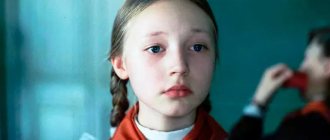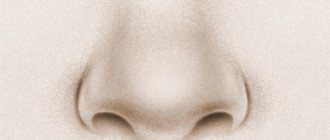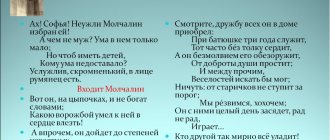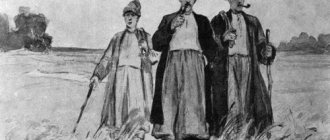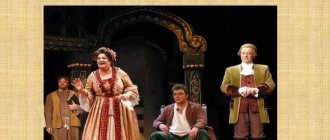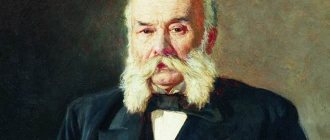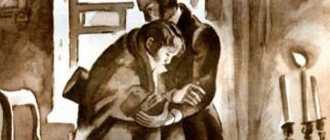Nikolai Vasilyevich Gogol spent most of his life in St. Petersburg. He sincerely loved this city and tried to preserve its appearance in his heart. Here the author wrote his works, which at first were not approved by the reader and critics. But the writer did not give up and was able to achieve worldwide fame. The image of St. Petersburg ran through all his creations as a red thread. This city occupied a special place in Gogol’s work.
Character image
The story was created in the period from 1830 to 1833, at that time Gogol was a free student at the Academy of Arts. This allowed him to attend classes at will, but the writer preferred to communicate a lot with painters. He admired the modesty, intelligence, and strength of character of artists.
It was long-term communication with painters that allowed Gogol to create the image of Piskarev. The character's history was filled with tragic events. The young man was an ordinary artist and lived in St. Petersburg; the author deliberately does not describe his appearance - this technique allows him to focus on the inner world of the character. It is only emphasized : he is in a tailcoat, a raincoat and a frock coat, which is stained with paint.
Piskarev’s main dream is to serve eternal ideals and art. Even in the impulse of proposing marriage to a prostitute, he still put creativity first. He sees his future life simply: he draws, his wife inspires and does handicrafts.
Brief description of Piskarev’s personality:
- modesty;
- vulnerability;
- kindness;
- amorousness;
- meekness.
At the same time, the artist is distinguished by an important character trait - hard work. The author sympathizes with him more than with Pirogov. The lieutenant is the embodiment of a playmaker, while the artist is a true creator and servant of art.
Getting to know the city
A young writer comes to St. Petersburg with the intention of staying here forever. He is captivated by the beauty of the city and dreams that in the very near future he will be able to afford to rent an apartment overlooking the beautiful Neva. Gogol understands that here his life will completely change and all his dreams are connected precisely with this.
In the meantime, the young man does not have the opportunity to rent an expensive apartment, he stays in the house of a modest pharmacist Trut. A little later he moves to the famous Meshchanskaya Street, which is mentioned in some of Gogol’s works. In his letters, the author describes the street as “a haven of tobacco shops, Chukhon nymphs and German artisans.”
Also in his messages to friends and family, he talked about the house where he lived. The young man writes that there were people of various classes and various small shops there:
- two tailors;
- shoemaker's workshop;
- hosiery factory workers;
- decater and dyer;
- tobacconist's.
For Nikolai Vasilyevich, the city has always been the most unusual and magical, as if filled with a special spiritual atmosphere. Several decades later, Rome was able to replace St. Petersburg for the author, but not completely, so more and more often he returned to his homeland.
Despite the fact that the city was gloomy and gray, in comparison with Ukraine and its bright greenery, the writer loved it very much. All its shortcomings paled against the background of the grandeur of the monuments and buildings.
Artist's story
The story begins with Piskarev and Pirogov walking together along the streets of the city . In the evening, a different life begins on them, more lively. Ladies with bright makeup quickly fly past passers-by. It was one of them that attracted the artist’s attention. His imagination quickly drew charming pictures of a joint future, Piskarev could barely keep up with the stranger.
They reached a tall house and the woman beckoned to him. The man’s heart beat joyfully, he could not believe his eyes: he was invited into the home. They went up to the fourth floor. Entering the room, the artist felt disappointed. The apartment looked unsightly, there were cobwebs in the corners, and in the room there were naked women combing their hair in front of the mirrors. They were not at all embarrassed by him, but Piskarev himself felt ashamed and ran away from home.
The man did not know what to call the stranger, but he guessed her occupation - prostitution. This upset him greatly, since such a woman could be considered fallen. After some time, a wonderful dream came to him. In it, his beloved was a rich lady and she invited the young man to her house.
The beautiful vision captivated Piskarev so much that he wanted to see it again. He became addicted to smoking opium and one day saw the stranger again. The artist asked her to marry her, but she only laughed in response. Some time later he was found with his throat cut.
Aphorisms and quotes from books by Russian authors -It is unknown what exactly caused his action - unrequited love, the cruelty of the world, or something else. Piskarev's death can be considered a victim of insane passion that completely consumed him.
Baratynsky E. * Batyushkov K. * Berggolts O. * Berdyaev N. * Blok A. * Bulgakov M. * Bunin I. * Bykov V. * Vyazemsky P. * Herzen A. * Gogol N. * Goncharov I. * Gorky M * Griboyedov A. * Green A. * Dobrolyubov N. * Dostoevsky F. * Yesenin S. * Ilf I. * Karamzin N. * Kataev V. * Kolchak A. * Krylov I. * Lermontov M. * Leskov N. - new author, quotes * Likhachev D. * Lomonosov M. * Mayakovsky V. * Nabokov V. * Nekrasov N. * Ostrovsky A. * Petrov E. * Prishvin M. * Pushkin A. - new quotes * Radishchev A. * Roerich N * Saltykov-Shchedrin M. * Simonov K. * Stanislavsky K. * Stanyukovich K. * Stolypin P. * Sumarokov A. * Tolstoy A.K. * Tolstoy A.N. * Tolstoy L.N. * Turgenev I. * Tyutchev F. * Fonvizin D. * Chekhov A. * Schwartz E. * Eisenstein S. * Ehrenburg I.
Russia, end of XX - beginning of XXI
— Akunin B. * Altov S. * Vysotsky V. * Geraskina L. * Dementiev A. * Zadornov M. * Kunin V. * Melikhan K. * Okudzhava B. * Rozhdestvensky R. * Sakharov A. * Snegov S. * Solzhenitsyn A. * Suvorov V. * Talkov I. * Troepolsky G. * Uspensky E. * Filatov L. * Chernykh V. * Shenderovich V. * Shcherbakova G.
Gogol Nikolai Vasilyevich (1809 - 1852)
Quotes
- sheet
1 () () () () () Biography >>
Quotes from the “Petersburg story” by N.V. Gogol "Nevsky Prospekt", 1835
There is nothing better than Nevsky Prospekt, at least in St. Petersburg; for him he is everything. Why does this street not shine - the beauty of our capital! I know that not one of its pale and bureaucratic residents would trade Nevsky Prospect for all the benefits.
Who doesn't like it? As soon as you step onto Nevsky Prospekt, it already smells like a festivities. Even if you had some necessary, necessary work to do, once you get to it, you will probably forget about any work. Here is the only place where people show up not out of necessity, where necessity and the mercantile interest that embraces the whole of St. Petersburg have not driven them. It seems that a person met on Nevsky Prospect is less selfish than in Morskaya, Gorokhovaya, Liteinaya, Meshchanskaya and other streets, where greed and self-interest and need are expressed in those walking and flying in carriages and droshky.
Almighty Nevsky Prospekt! The only entertainment of the poor during the St. Petersburg festivities! How clean its sidewalks are swept, and, God, how many feet have left their traces on it! And the clumsy dirty boot of a retired soldier, under the weight of which the very granite seems to crack, and the miniature, light as smoke, shoe of a young lady, turning her head to the shining windows of the store, like a sunflower to the sun, and the rattling saber of a hopeful ensign, conducting there is a sharp scratch on it - everything takes out on it the power of strength or the power of weakness. What a rapid phantasmagoria takes place on it in just one day! How many changes will he endure in one day!
Let's start from the very early morning, when all of St. Petersburg smells of hot, freshly baked bread and is filled with old women in tattered dresses and cloaks, making their raids on churches and compassionate passers-by. Then Nevsky Prospekt is empty: the stout shopkeepers and their commissaries are still sleeping in their Dutch shirts or soaping their noble cheeks and drinking coffee; the beggars gather at the doors of the pastry shops, where the sleepy Ganymede, who flew yesterday like a fly with chocolate, crawls out, broom in hand, without a tie, and throws them stale pies and scraps. The right people trudge along the streets: sometimes Russian men, hurrying to work, cross the streets in boots stained with lime, which even the Catherine Canal, known for its cleanliness, would not be able to wash. At this time, it is usually indecent for ladies to go, because the Russian people love to express themselves in such harsh expressions, which they probably will not hear even in the theater.
Until twelve o'clock, Nevsky Prospect does not constitute a goal for anyone, it serves only as a means: it is gradually filled with people who have their own occupations, their own worries, their own annoyances, but who do not think about it at all. ... At this time, no matter what you put on yourself, even if you had a cap on your head instead of a hat, even if your collars stuck out too far from your tie, no one will notice it.
At twelve o'clock, tutors of all nations make raids on Nevsky Prospekt with their pets in cambric collars. The English Joneses and the French Cocks walk arm in arm with the pets entrusted to their parental care and with decent seriousness explain to them that the signs above the stores are made so that through them one can find out what is in the stores themselves. Governesses, pale misses and pink Slavs, walk majestically behind their light, nimble girls, ordering them to raise their shoulders a little higher and stand straighter; in short, at this time Nevsky Prospect was a pedagogical Nevsky Prospect.
The closer it gets to two o'clock, the fewer the number of tutors, teachers and children: they are finally forced out by their gentle parents, walking arm in arm with their motley, multi-colored, weak-hearted friends. Little by little, everyone joins their society, having completed quite important homework, such as: talking with their doctor about the weather and about a small pimple that has popped up on the nose, learning about the health of horses and their children, who, however, show great talents, reading the poster and an important article in the newspapers about people coming and going, finally drinking a cup of coffee and tea; They are also joined by those whom an enviable fate has endowed with the blessed title of officials on special assignments. They are also joined by those who serve on a foreign board and are distinguished by the nobility of their occupations and habits. God, what wonderful positions and services there are! how they elevate and delight the soul!
Everything you meet on Nevsky Prospekt is full of decorum: men in long frock coats, with their hands in their pockets, mothers in pink, white and pale blue satin jackets and hats.
You are here (on Nevsky Prospekt)
you will meet the only sideburns, passed with extraordinary and amazing art under the tie, sideburns velvet, satin, black, like sable or coal, but, alas, belonging only to one foreign board. Providence has denied employees in other departments black sideburns; they must, to their greatest discomfort, wear red ones. Here you will meet a wonderful mustache, impossible to depict with any pen or brush; a mustache to which the best half of life is dedicated, the subject of long vigils during the day and night, a mustache on which the most delicious perfumes and aromas have been poured and which have been anointed with all the most precious and rare varieties of lipsticks, a mustache that is wrapped at night in thin vellum paper, a mustache that who breathe the most touching affection of their possessors and who are the envy of those passing by.
Thousands of varieties of hats, dresses, scarves - colorful, light, to which sometimes the affection of their owners remains for two whole days, will dazzle anyone on Nevsky Prospekt. It seems as if a whole sea of moths has suddenly risen from the stems and is agitated in a brilliant cloud over the black male beetles. Here you will meet such waists as you have never even dreamed of: thin, narrow waists, no thicker than the neck of a bottle, when you meet them, you will respectfully step aside, so as not to somehow carelessly push with an impolite elbow; timidity and fear will take possession of your heart, lest somehow even your careless breathing break the most beautiful work of nature and art.
And what kind of ladies' sleeves you will see on Nevsky Prospekt! Oh, how lovely! They are somewhat similar to two balloons, so that the lady would suddenly rise into the air if the man did not support her; because it is as easy and pleasant to lift a lady into the air as a glass filled with champagne is brought to your mouth.
Nowhere do people bow as nobly and naturally when they meet each other as on Nevsky Prospekt.
Here (on Nevsky Prospekt)
you will meet a unique smile, a smile of the height of art, sometimes such that you can melt with pleasure, sometimes such that you suddenly see yourself lower than the grass and lower your head, sometimes such that you feel taller than the Admiralty Spitz and raise it up.
Here (on Nevsky Prospekt)
you will find people talking about a concert or the weather with extraordinary nobility and self-esteem.
Here (on Nevsky Prospekt)
you will meet a thousand incomprehensible characters and phenomena. Creator! what strange characters one meets on Nevsky Prospekt! There are many such people who, having met you, will certainly look at your boots, and if you pass, they will turn back to look at your coattails. I still can't understand why this happens. At first I thought that they were shoemakers, but, however, it didn’t happen at all: they mostly serve in different departments, many of them can write an excellent report from one government place to another; or people who go for walks, read newspapers in pastry shops - in a word, for the most part they are all decent people.
At this blessed time from two to three o'clock in the afternoon, which can be called the moving capital of Nevsky Prospect, the main exhibition of all the best works of man takes place. One shows a dandy frock coat with the best goods, another shows a beautiful Greek nose, a third has excellent sideburns, a fourth shows a pair of pretty eyes and an amazing hat, a fifth shows a ring with a talisman on a dandy little finger, a sixth shows a foot in a charming shoe, a seventh shows a tie that excites wonder. , the eighth is a mustache that plunges into amazement. But three o'clock strikes, and the exhibition ends, the crowd thins out...
At three o'clock there is a new change. Spring suddenly arrives on Nevsky Prospect: it is covered all over with officials in green uniforms. Hungry titular, court and other advisers are trying with all their might to speed up their progress. Young collegiate registrars, provincial and collegiate secretaries are still in a hurry to take advantage of the time and walk along Nevsky Prospect with a posture that shows that they have not at all sat for six hours in the presence.
As soon as dusk falls on the houses and streets and the watchman, covered with matting, climbs onto the stairs to light a lantern, and those prints that dare not appear in the middle of the day look out from the low windows of the shops, then Nevsky Prospect comes to life again and begins to move. Then comes that mysterious time when the lamps give everything a kind of tempting, wonderful light.
You will meet a lot of young people, most of them single, in warm frock coats and greatcoats. At this time, some kind of goal is felt, or, better, something similar to a goal, something extremely unconscious; Everyone’s steps speed up and generally become very uneven. Long shadows flicker along the walls and pavement and almost reach the Police Bridge with their heads. Young collegiate registrars, provincial and collegiate secretaries walk around for a very long time; but the old collegiate registrars, titular and court councilors for the most part sit at home, either because they are married people, or because the German cooks who live in their houses prepare their food very well. Here you will meet respectable old men who, with such importance and with such amazing nobility, walked for two hours along Nevsky Prospekt. You will see them running in the same way as young college registrars, in order to look under the hat of a lady they had envisaged from afar.
Role in the work
You need to read Gogol's story very carefully. The characterization of Piskarev allows us to better understand the motives of the character’s actions. His death is due to the discrepancy between dreams and reality. The artist imagined a lot, thought up situations and inflated his feelings, which led to disaster.
It was no coincidence that Gogol came up with the dream episode. Its artistic function is to reflect Piskarev’s desires . He sees a rich lady, not a prostitute. The artist made an attempt to save the lady from the slavery of selling her own body, but she only ridiculed him. In her opinion, work is the lot of seamstresses and laundresses, and she relaxes and does useful things.
Such a revelation destroyed the illusory world of the artist. Unable to cope with his emotions, the man committed suicide.
Through the artist, Gogol showed that selfless love is not always capable of healing moral ugliness . The meaning of Piskarev’s life lay in creation, but even this did not stop him from a terrible act. The hero can be cited as an example as a person who suffers from the cruelty of the world and prefers to be in illusions and dreams.
The splendor and poverty of St. Petersburg society
Even a superficial analysis of the story allows us to draw a conclusion about the dependence of Pirogov and others like him on the opinions and assessments of others. The author himself briefly summarizes that what is visible is only apparent, completed by the observer himself. Why is this gentleman so rich? Yes, because “he walks around in a well-tailored frock coat.” And “he consists entirely of his frock coat.”
In reality, the lieutenant’s pride and bravado turned out to be just as false and feigned. He not only resigns himself to well-deserved punishment and humiliation, but simply forgets about it. Having refused satisfaction, he is most likely guided by the desire to avoid publicity and the fear of losing his prestige in a society where excellence in a mazurka can cause general admiration.
In contrast to the mental anguish of the tragically deceased romantic and dreamer Piskarev, Pirogov’s emotions do not evoke sympathy. He is not just small, but a petty and empty person, incapable of deep experiences. The lieutenant is a product of moral depravity generated by the “tinsel education and terrible crowds of the capital.”
